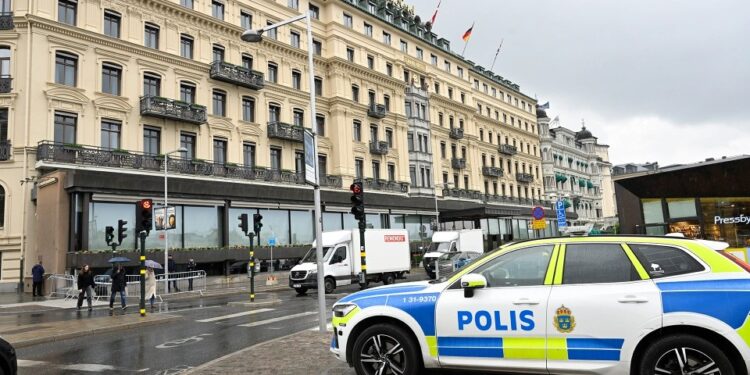For decades, the Bilderberg Group has been a source of fascination, suspicion and conspiracy. With its annual invitation-only meetings drawing some of the most powerful figures in global politics, finance, defence and technology, the group continues to operate behind closed doors with an air of cultivated mystery. This year’s meeting is currently underway at the Grand Hôtel in Stockholm, Sweden, adding fresh intrigue to one of the world’s most secretive gatherings.
Founded in 1954 at the Hotel de Bilderberg in the Netherlands, the group was originally intended to strengthen ties between Europe and North America in the post-war order. The idea was to foster informal dialogue between political leaders, business executives, academics and journalists from both sides of the Atlantic, in an atmosphere free from media scrutiny or public accountability.
Each year, around 120 to 150 guests attend the conference, held in a luxury hotel somewhere in Europe or North America. Participants have included a roll call of presidents, prime ministers, central bankers, CEOs, and even royalty. What sets Bilderberg apart is its strict adherence to the Chatham House Rule: participants are free to use the information received, but neither the identity nor the affiliation of the speaker may be revealed. This confidentiality, organisers argue, allows for more honest and open exchanges.
But for critics, that secrecy is precisely the problem. Bilderberg has long been accused of being a forum where elite consensus is built behind the backs of ordinary citizens. With no press access, no public record, and no transparency about the policy outcomes, suspicions have flourished. Some see it as an undemocratic venue for shaping global economic and security agendas, outside of any electoral mandate. Others go further, spinning elaborate theories of world government and financial control.
While such claims often veer into hyperbole, it is true that Bilderberg has often anticipated, if not influenced, major developments. European integration, for instance, was a recurring theme in the early years of the conference. Several political figures, such as Bill Clinton and Emmanuel Macron, were invited before rising to national leadership. Banking policies, digital surveillance, AI ethics, energy transitions and NATO strategy have all featured in recent years, reinforcing the sense that this is not just a discussion group, but a crucible for elite alignment.
The group’s defenders insist it is not a conspiracy, but a necessity. In a complex and interdependent world, they argue, informal dialogue is vital for reducing misunderstandings and coordinating cross-border challenges. Yet the reluctance to publish full agendas or disclose outcomes does little to dispel mistrust in an age already marked by deep suspicion of institutions.
In today’s era of populist backlash and digital transparency, Bilderberg may feel increasingly out of step. Its insistence on discretion is interpreted by many as arrogance or evasion. At the same time, the enduring influence of its participants, many of whom return year after year, suggests that the group remains a significant, if opaque, pillar of the global establishment.
Whether one sees Bilderberg as a think tank for stability or a shadow government in action, its very existence—and its presence this week in Stockholm—forces difficult questions about the nature of power, democracy and public trust in the 21st century.
newshub finance



Recent Comments